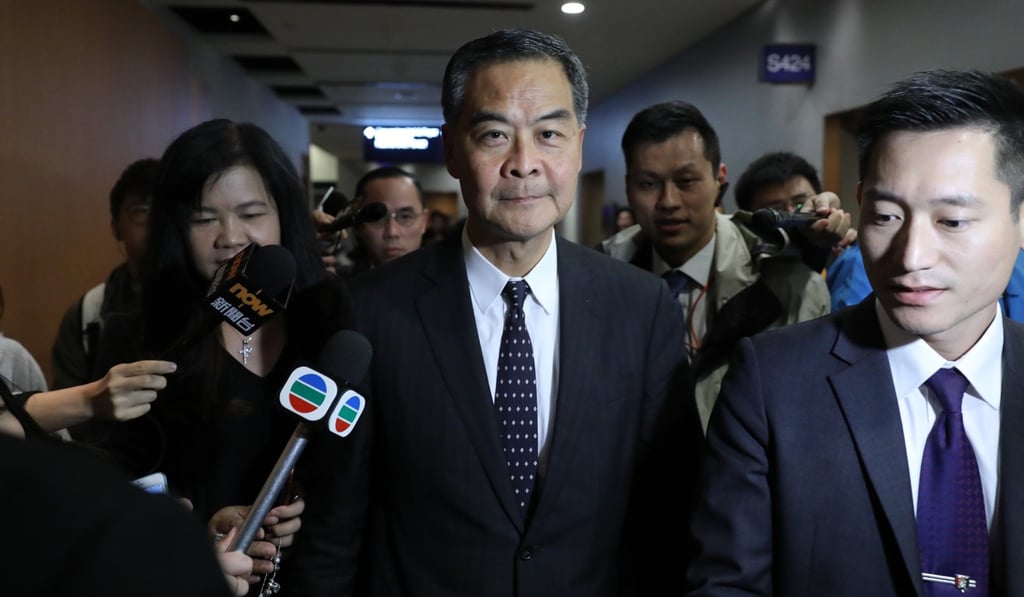Advertisement
Opinion | Facts matter in the case on CY Leung’s UGL payment. Critics should not just pick on procedural matters
- Tony Kwok says criticism that the justice department did not seek private counsel should not overlook the lack of evidence to prosecute in the first place
- Not only was there no conflict of interest to warrant ‘briefing out’ the case, but outside legal advice was already available to the case as part of due process
Reading Time:3 minutes
Why you can trust SCMP

The usual tactic employed by opposition parties in Hong Kong to mislead the public is to argue a case on procedural matters when they know that they are unable to argue about the facts. The case involving Australian company UGL’s HK$50 million (US$6.4 million) payment to former chief executive Leung Chun-ying is a typical example.
Advertisement
Based on the facts now publicly known, it is clear there is no evidence to prosecute Leung under Hong Kong’s corruption laws. Opposition parties queried why it took four years for the Independent Commission Against Corruption to conclude its investigation if there was no evidence. I wondered the same thing; based on my experience in dealing with thousands of private-sector corruption cases, such a simple case should have been concluded within months.
I believe that the ICAC wanted to demonstrate that it had conducted a most thorough investigation, “leaving no stone unturned" as it described. This would probably have involved an in-depth investigation into all of Leung’s bank accounts and financial dealings. It would have been a mammoth job and may explain why the investigation took so long. If that is the case, it would prove that Leung is totally above board, as any illegal transaction could not possibly have been overlooked.
In this case, where any low-ranking prosecutor could have confidently decided not to prosecute, why was it necessary to seek private counsel and cost the taxpayer tens of thousands, if not millions, of dollars in legal charges?

Advertisement
I am really surprised to see that the Bar Association, with its wealth of legal knowledge, failed to address the evidentiality of this case and instead focused its criticism of the secretary for justice on procedure, for not seeking private counsel on the case.
In my experience as an anti-corruption consultant who has worked in 26 countries, I do not know of a public prosecution office in any country that would seek legal advice from private counsel on instituting prosecution of their senior government officials.

Advertisement
